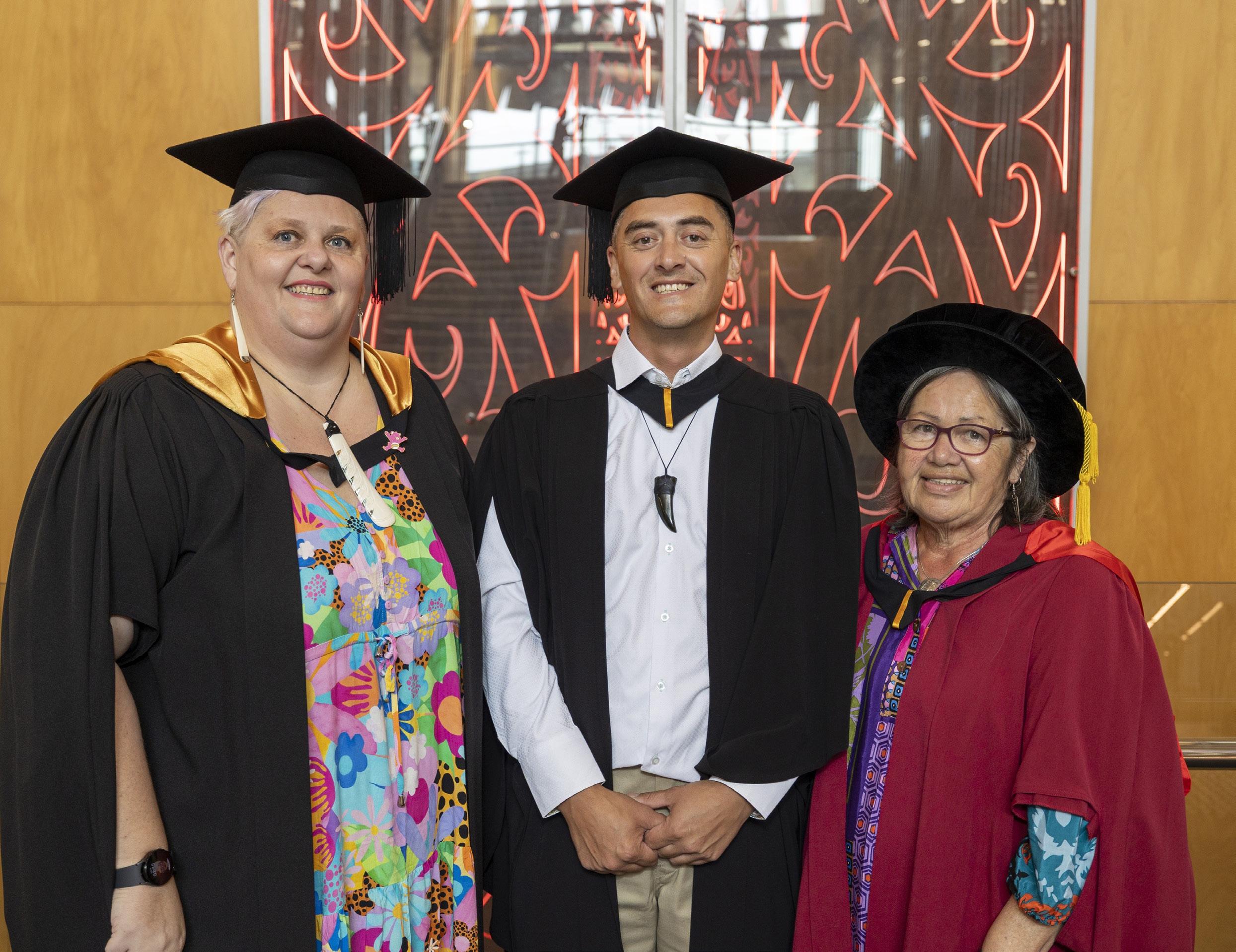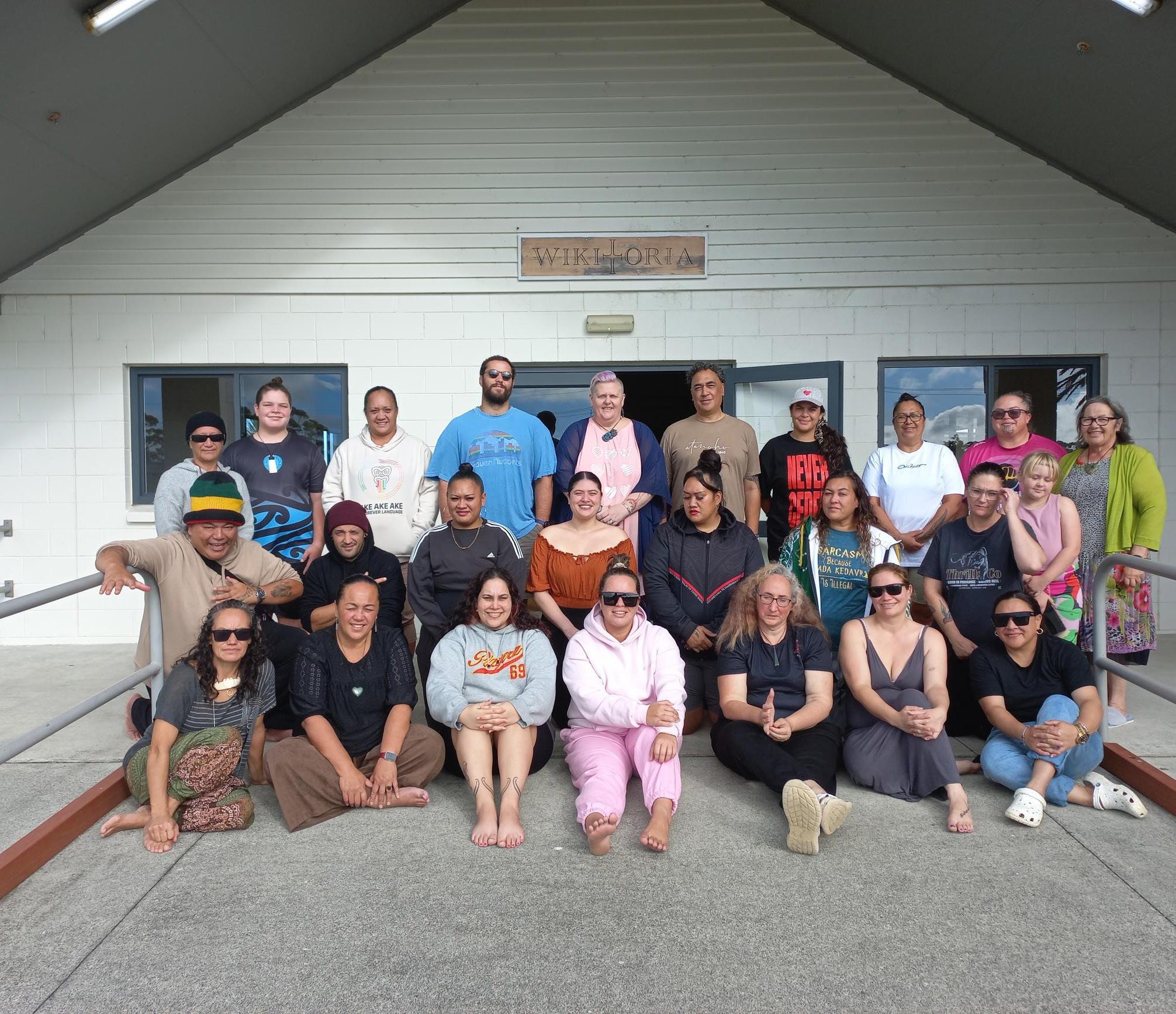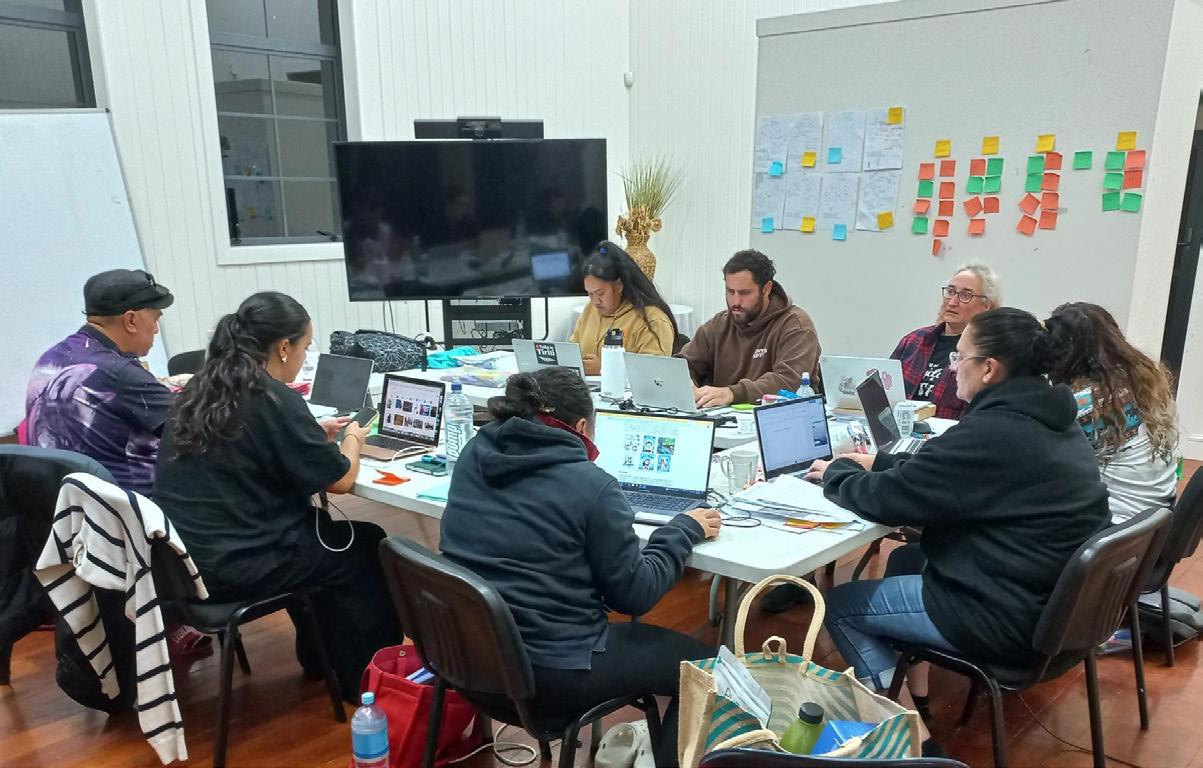
8 minute read
Community-based teacher training programme boosts Far North schools
An iwi-led initiative, delivered in conjunction with the University of Waikato’s Bachelor of Teaching, is beginning to address the shortage of qualified teachers in Northland. Its success could provide similar solutions for communities throughout Aotearoa.
Sometimes the answers to complex problems are right under our noses. Attracting more qualified teachers in the Far North is one example. There, the solution is the local community itself.
That’s why Te Hiku Initial Teacher Education (ITE) programme, which addresses teacher shortages by supporting more Māori and local students into teaching careers, has proved so successful.
The programme supports experienced teacher aides and those with Limited Authority to Teach (LAT) into teaching careers, while they continue to work and live in their own schools and communities.
Resource for the programme’s development was provided by Te Hurihanganui (2020 to 2023), a Ministry of Education initiative focused on tackling inequities and racism in education. Far North iwi Ngāi Takoto, with support from Te Rarawa and school leaders in the region, conceptualised the solution.
The programme combines marae-based wānanga in Te Hiku. It is facilitated by University of Waikato staff Professor Mere Berryman (Ngāi Tūhoe, Ngāti Awa, Ngāti Whare), Jay HaydonHoward and Margaret Egan.
The programme launched in 2023. Today the University of Waikato, with the Teaching Council of Aotearoa New Zealand, continues to provide the response. Two papers at each level are taught online by wider University of Waikato staff.
The first cohort of Te Hiku students are already honing their professional skills as teachers in the classrooms of their own communities. The second cohort will graduate at the end of this year.
Te Hurihanganui: The turning point
Mere says there is significance between the concept of Te Hurihanganui and the involvement of iwi and school leaders in the inception of the programme.
The name Te Hurihanganui comes from the well-known pūrākau of Ranginui and Papatūānuku being separated by Tāne Mahuta and his brothers.
So deep was the grief of both parents that, as acts of aroha, the sons turned their mother face-down to protect their despair from being fully revealed. This act of turning is known as Te Hurihanganui, the great change or turning point from which humankind evolved into Te Ao Mārama.
Predominantly, but not exclusively, the programme is attracting Māori learners into the tertiary space.
There, they get wraparound support from local iwi and school communities. Ngāi Takoto iwi liaison and pastoral care provider, Mere Henry, believes this unique design and delivery of the programme is the reason for its success.
“The deliberate focus on mana-enhancing learning, kaupapa Māori principles and localised delivery has enabled the Te Hiku ākonga to study close to home, maintain their employment, stay connected to whānau, and become qualified without having to move away,” she says.
Supporting local people into local solutions
Retention of effective teachers is an ongoing concern for remote areas like the Far North.
Many graduate teachers often start their careers in places like Te Hiku, where qualified teachers are needed, so it’s easier to be placed. But after they gain experience, they head off to bigger centres.
Early in the planning stages, Ngāi Takoto made sure this initiative would reach into the regions the five Far North iwi encompass.
Prominent iwi educators John Paitai and Louise Anaru point out that training teachers who are already actively involved and settled in the local community would be a huge advantage not only for ākonga, but for the schools hiring them.
That has proven to be the case – and also advantages people who never thought they would go to university or get a degree.
Melissa Pivac, now in her final year of study, was hesitant about enrolling.
“As an older student living in the Far North, I was initially unsure about studying for a degree, as I felt it may have been beyond my abilities. The thought of having to travel to Auckland or Hamilton to attend university seemed financially and logistically unfeasible.”
Melissa says Te Hiku has had a profound impact on both her personal and professional growth.
“Learning alongside my teaching colleagues in an environment that I resonate with, and receiving guidance from exceptional lecturers, I have grown in confidence. I have built a strong foundation in whanaungatanga, manaakitanga, and kotahitanga – values that I look forward to weaving into my future teaching practice.”
Fellow student Wiremu Diamond Wilson says his experience as a student in Te Hiku has been deeply transformative.

“It has not been an easy journey, but two key factors have kept me grounded and persistent: the exceptional calibre of those delivering the kaupapa, and the unwavering support I have received.”
Wiremu believes the notion of whanaungatanga played a critical role in helping him strengthen his professional pedagogical routines while also encouraging his personal growth.
Of his lecturers and school leaders, he says it is empowering to be challenged and believed in “by someone whose only agenda is to see you rise”.
Mere, who has worked in the education sector since the 1970s, says she has never been involved in anything as powerful as the Te Hiku initiative.
“It has been an absolute privilege to be a part of this. I’ve never in my life learned so much about resilience and tenacity. These student teachers are living proof of that –reaching that turning point and realising their potential when the odds were stacked against them. There were obstacles that continued to be put in front of them, but they rose to the challenges time and time again. It sounds cliché to say I’m proud, but I am.”
Direction and purpose for the next generation
In April this year, the inaugural graduation for the first cohort from the Te Hiku programme took place in Tauranga. That graduation included Takawai McMath, a 41-year-old father of three, who proudly received his Bachelor of Teaching from the University of Waikato.
Just three years before, Takawai was standing on a muddy construction site in the Far North, thinking about what kind of future he wanted to build.
Takawai credits a rainy day conversation with his best friend for planting the seed of change. His friend took the first leap into teaching and, six months later, returned to the building site to encourage Takawai to do the same.
There was, however, another more personal motivator who catapulted Takawai into schooling and university study. His eldest son, Ngataiawa, had once shared with him that university didn’t feel attainable for Māori.
“That stuck with me. I didn’t want him to believe that. I wanted to show him it was possible.”
With his father role-modelling the tertiary pathway, Ngataiawa did enrol in a business finance degree at the University of Waikato’s Tauranga campus, where he is now in his final year.
Takawai had a clear aspiration for his son.
“I told him, ‘no gap year, get straight into it’. And he did. Having him studying down there helped keep me on track too. I couldn’t drop the ball when he was watching.
“It’s easy for our boys in the Far North to drift. There isn’t always a lot going on, so you have to lead by example… I did this as a dad, and now my son is walking his own path too.”
Now a teacher at Kaitaia College, Takawai is proud of how far he has come and grateful for the support he received along the way.
“My experience studying under my lecturers over the last two years at Waikato University has been the most important learning of my life. This course gave me direction, purpose and belief in myself as a teacher.”
Transforming communities through cultural responsiveness
Micheal (Mike) Moeau and his daughter are both in their final year of the Te Hiku programme.
Mike believes the delivery of the programme in the Far North holds transformative power for communities.
“The Te Hiku teaching team models what it means to be culturally responsive and inclusive educators. They encourage a learning culture where all ākonga are supported to succeed academically, socially and culturally,” he says.
Mere says it wasn’t just a coincidence that the programme was rolled out first at the top of the North Island – Te Hiku o Te Ika (the tail of the fish).
She had been told by iwi many times that the fish (Te ika nui a Māui) can’t move without the tail moving first.
Without knowing it at the time, implementation of the programme was going to benefit more than just the schools and students in the Far North.
Ultimately the main objective was to develop a model that was transportable, Mere says.
She says there has already been interest shown in other remote places like Taumarunui and Wairoa which are facing similar teacher shortage dilemmas.
Her hope is for more opportunities to deliver locally based, culturally responsive teaching degrees that see teachers trained in their home communities and then stay in those communities to teach.

Kupu | Vocabulary
Te Hiku: The tail (refers to Te Hiku o Te Ika, the Far North region)
Ranginui: Sky Father
Papatūānuku: Earth Mother
Tāne Mahuta: Atua (god) of forests and birds
Te Ao Mārama: The world of light
Mana: Authority, prestige, spiritual power
Manaakitanga: Hospitality, kindness, support
Kotahitanga: Unity, togetherness
Wānanga: Forum, seminar
Te Ika Nui a Māui: The great fish of Māui (North Island)










